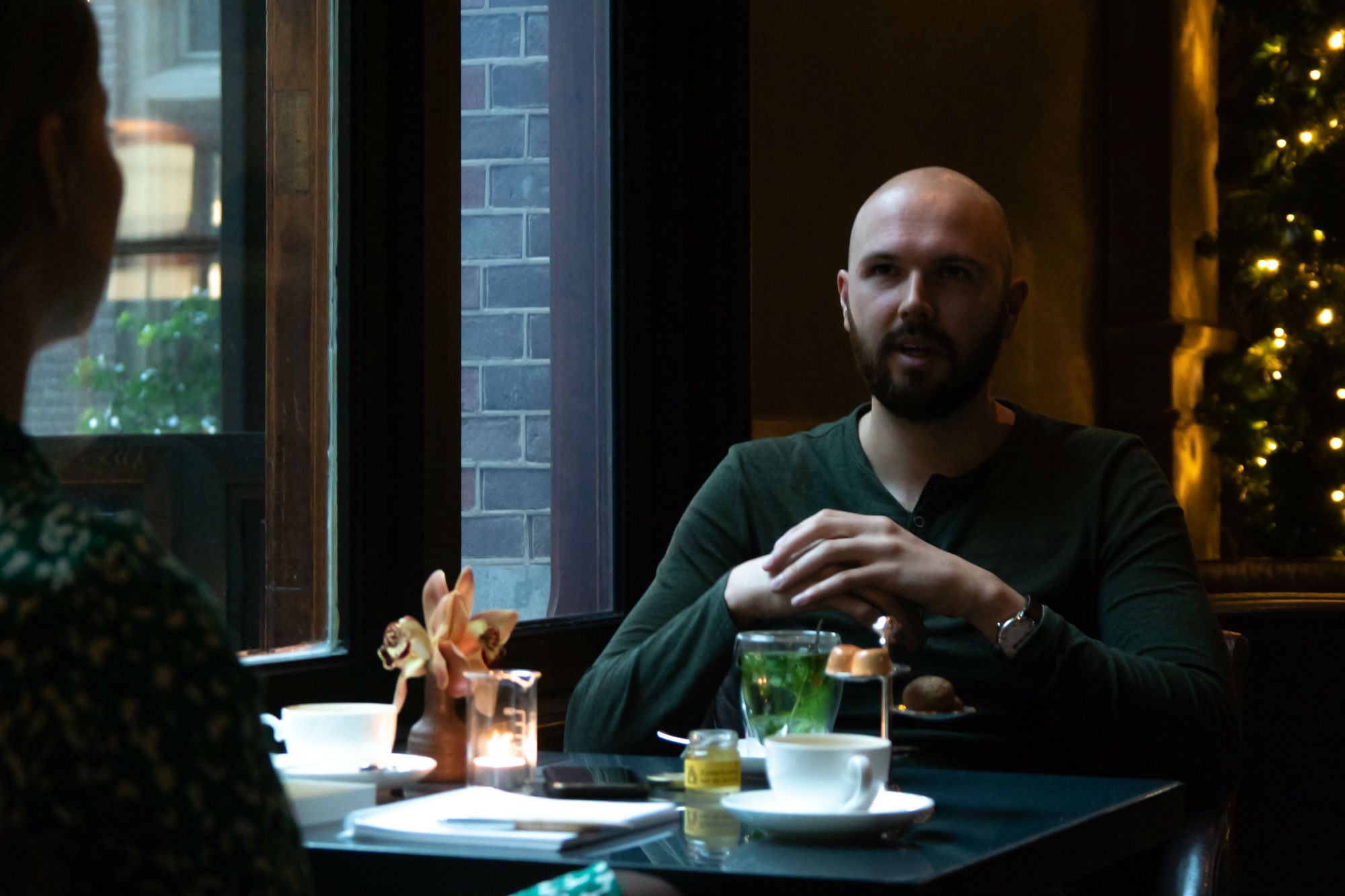Since the sexual revolution, we seem to have achieved greater sexual freedom than ever. At the same time, we seem to have a rather limited view of what sexuality is, according to philosopher Ype de Boer.
Ype de Boer (30), who is linked to the Vrije Universiteit as an external PhD student, wrote the book Het erotisch experiment (which translates to The erotic experiment), as a plea for a richer understanding of erotic perception. The decision to write this book wasn’t made overnight. “I didn’t want to be known as some sex guru,” he tells us laughingly in the lobby of a hotel in Amsterdam-Zuid.
Why are sex and philosophy such a logical combination?
“When you’re aroused, you perceive the world in a different way. A mouth is no longer there to talk or eat, but to kiss. The ideas you have at that moment determine the possibilities you see. That is intriguing to me, from a philosophical stance. Because what does that say about the nature of your reality? It changes depending on the state you find yourself in.”
“Additionally, we’re inclined to think that there is no thinking involved when it comes to sex. Maybe we even use sex to escape from thinking. The French word for orgasm is ‘la petite mort’, which translates to ‘the little death’ for a reason – as if you’re not fully there during that moment. Sex is often seen as a biological phenomenon that is far removed from human thinking. In my book, I argue that even the most mundane sexual act tells us something about its erotic meaning and the way we think. The ideas and images that we harbor determine which erotic possibilities we see and don’t see.”
„I don’t want to turn this into a plea for tantra, but it’s one of the ways to expand your erotic experience.”
And according to you, the way we think can also limit our potential erotic experiences?
“The way we think of eroticism influences our experiences. If you see sex as a beastly way to satisfy your physicals needs, or as a power game, you will experience it that way. A different outlook can change eroticism’s characteristics. Try to remember that it is just one way of looking at it – and thus, thinking about it.”
“In the Indian philosophy tantra, the body plays an entirely different role during sex: next to the physical body, tantra also puts a lot of emphasis on the ‘subtle body’, which can be used to communicate with others energetically. That set of ideas differs a lot from the standard, Western ideas about sex and the body. I don’t want to turn this into a plea for tantra, but it’s one of the ways to expand your erotic experience.”

How did you become so interested in this topic?
“I went through a few intense sexual experiences with a lover. Those experiences went a lot further than how I had perceived sex up until then and I realized how limiting my views were, although I couldn’t exactly put my finger on it. Eroticity to me almost limited itself to a manual, while reality is far richer than I could see at that point. I then started to do research on how other cultures and time periods viewed sex, the body and the human experience and how that led to a variety of erotic experiences and practices.”
The subtitle of the book is ‘Voorbij de moderne seksuele identiteit’ (which translates to ‘Beyond the modern sexual identity’). What do you mean with that exactly?
“Nowadays, we are generally very open when it comes to sexuality in The Netherlands. We’re no longer fazed by homosexuality or polyamorous relationships. But the freedom to be part of all of these different sexual identities also has a downside to it. That supposed ‘freedom’ becomes very limiting once you start valuing the image of, for instance, ‘homosexuality’ or ‘bisexuality’ too much. A gay person should behave like a gay person, a bisexual person should behave like a bisexual person. If you’re not careful, your self image will have an influence on your range of possible experiences.”
„You need to be conscious of psychological freedom, otherwise you’ll keep on limiting yourself to the same experiences.”
So according to you, to experience sex in a different way you need to escape from your own outlook on sex. How do you do that?
“I don’t think you need to escape from it. What’s most important is that you realise that we experience sex within a certain frame of reference. Ideas on sex from other cultures aren’t necessarily better and I don’t think the Western set of ideas should be traded in for Eastern ones, but by acknowledging that there are more possibilities you’ll be able to open up your own perspective. That creates room for other experiences.”
What measures can you take yourself to expand your own erotic world of experience?
“I hope that reading my book could be a start, but of course reading about this topic isn’t the same as having sex. You’ll have to start making it a reality yourself. Hopefully you’ll have a less one-sided idea of sex, which will then broaden your range of erotic experiences. You need to be conscious of psychological freedom, otherwise you’ll keep on limiting yourself to the same experiences.”








